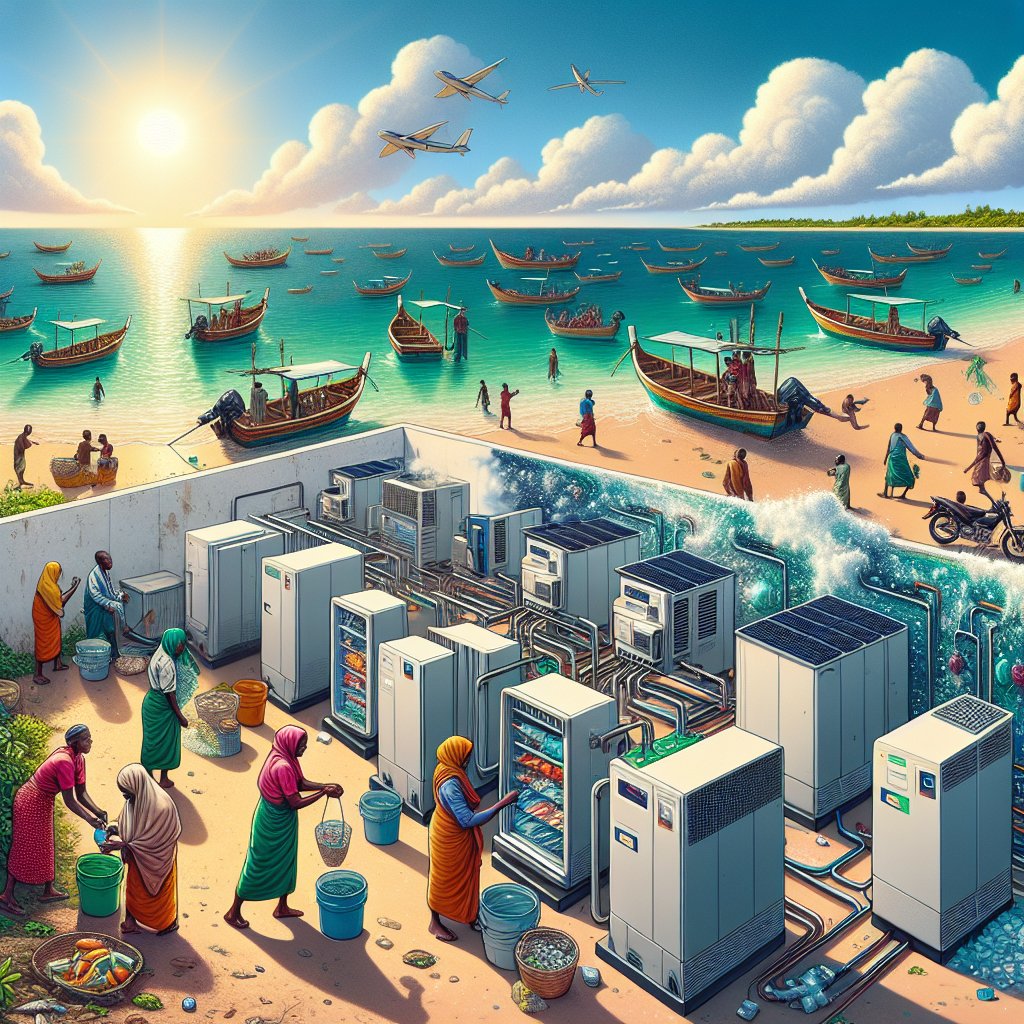Image created by AI
Kenyan Innovation Tackles Food Loss and Plastic Waste with Solar-Powered Freezers
In Mombasa, Kenya, a forward-thinking company is harnessing the power of the sun and the ubiquity of plastic waste to drive a revolution in food preservation and environmental sustainability. Kuza Freezer, a youth-led start-up, is turning heads with its innovative approach to tackling two of Kenya's most persistent problems: food insecurity due to post-harvest losses and environmental degradation from plastic pollution.
On the sunlit shores of Mombasa, amid the sounds of the Indian Ocean's gentle whispers, local women diligently gather plastic refuse. This waste isn’t bound for landfills; instead, it is the raw material for Kuza Freezer's pioneering product. The company purchases the collected waste, transforming it through a process that converts the plastics into pellets and subsequently moulds them into solar-powered cold storage units.
These freezers are marvels of modern innovation. Equipped with specialized batteries, they only require a short two-hour solar charge to provide up to seven hours of cooling. Kuza Freezer's technology offers an eco-friendly solution to small-scale vendors in the fish, poultry, and dairy industries, enabling them to maintain product freshness, extend shelf life, and significantly cut down on spoilage.
Purity Gakuo, Kuza Freezer's CEO, articulates the company's vision with clarity and passion, "Kuza Freezer is focused on providing cold storage solutions to empower small businesses within the fish value chain, improving their income while championing sustainability."
In three years, Kuza Freezers has made a mark, delivering over 350 units to a clientele that includes fish traders and ice vendors. The company's creativity shines in product diversity, offering everything from static freezers for fishing boats to mobile models with a 70-liter capacity mountable on motorbikes, facilitating efficient and fresh fish deliveries.
The start-up doesn't just sell a product; it sells a partnership. Customers receive free installation, training, and the addition of a tracking device with each unit to monitor functionality and maintenance requirements. At a cost of Ksh 100,000 (around $700), with the flexibility of installment payments, clients regard the investment as invaluable to their operations.
The significance of Kuza Freezer's innovation is not lost on local businessman Abdalla Ali, who encounters daily challenges with fish storage. Ali elucidates, "We need reliable storage to maintain our catch. Without it, the intense heat and dwindling ice lead to spoilage and financial losses." Kuza Freezer presents a solution that is as much about empowering local commerce as it is about tackling broader social issues.
Nickson Otieno, a renowned CEO of a sustainability consulting firm in Nairobi, exalts the dual impact of Kuza Freezer’s product. "Not only are we confronting the critical issue of food security that arises from inevitable food losses, but we're also addressing the environmental catastrophes presented by plastic waste. This innovation provides the infrastructure for food delivery while turning hazardous waste into valuable resources," Otieno elucidates, alluding to the profound implications of such technology.
Kuza Freezer's enterprise is an embodiment of sustainability and ingenuity. By integrating solar technology with circular economy principles, the company is leading a charge towards a greener, more sustainable future. In doing so, it's proving that in the quest for environmental and economic harmony, innovation is not just possible, but necessary.
#GOOGLE_AD










